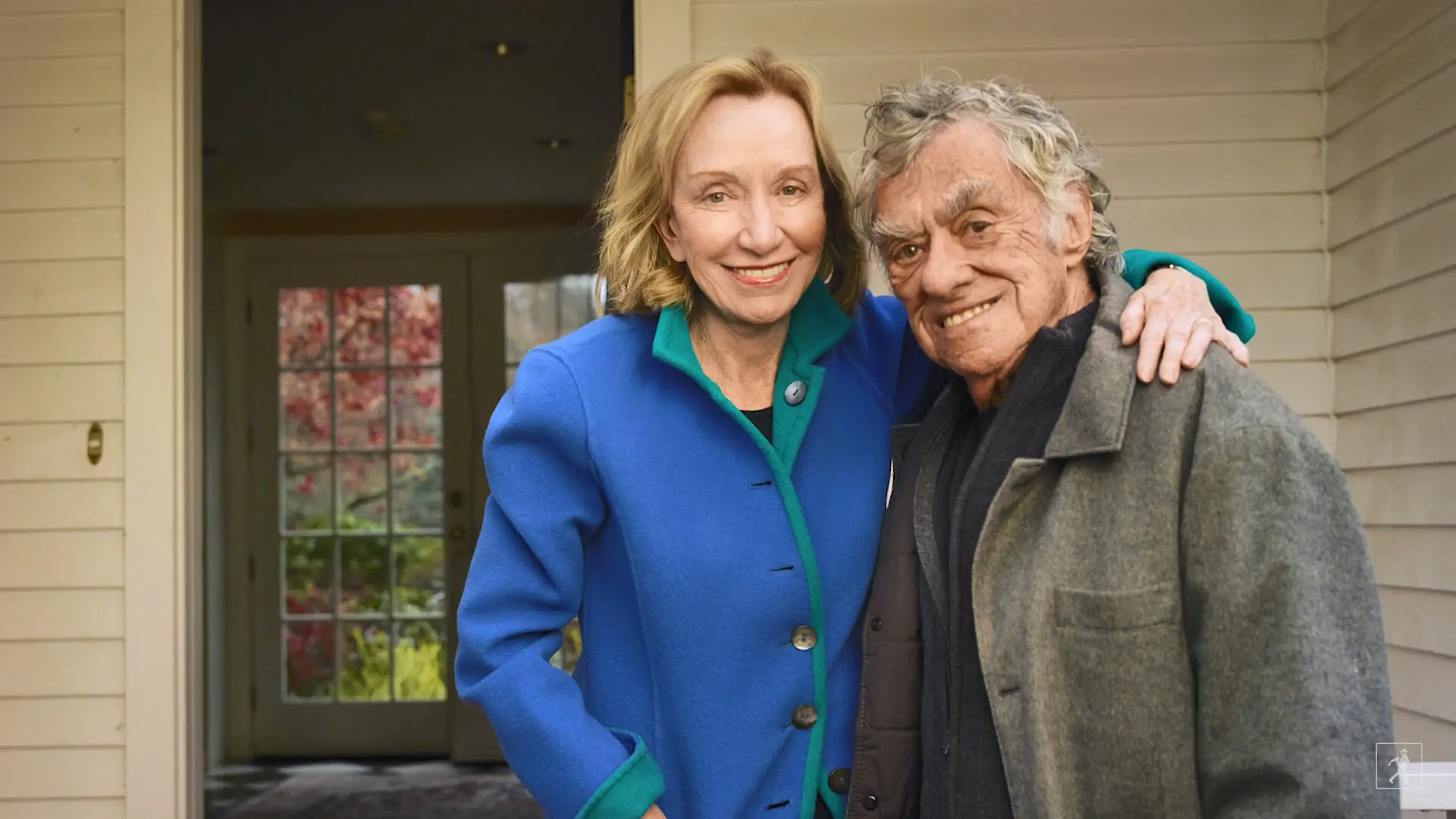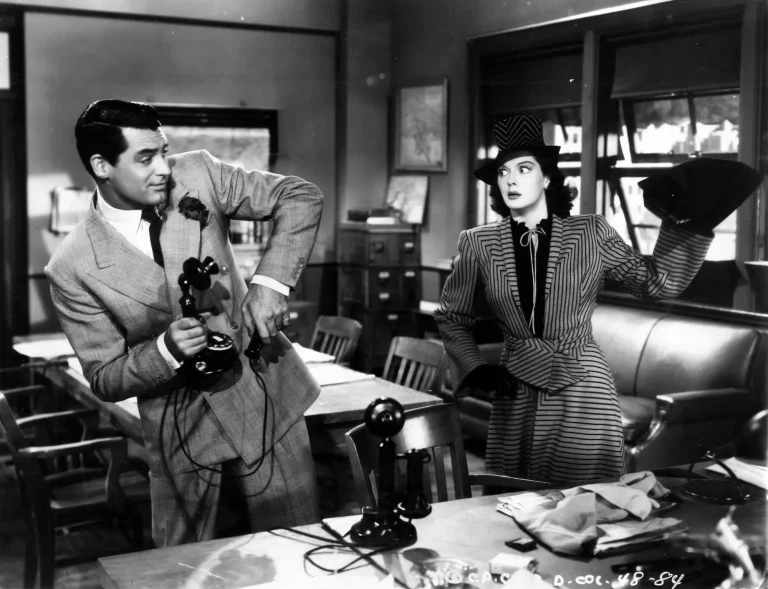History Lessons for Leaders—and All of Us
Doris Kearns Goodwin’s “An Unfinished Love Story,” reminds us that we need a little poetry in turbulent times
Do you have a favorite celebrity sighting?
Mine is admittedly a bit nerdish. It happened at a Legal Sea Foods restaurant just outside Boston, in June 2016.
I was in town working on a communications audit for a local hospital. At dinner with my Ragan Consulting Group colleague, Katrina Gill, I spotted them across the room: former Harvard University professor and historian Doris Kearns Goodwin and her husband, speechwriter Richard Goodwin, whose words defined the hopes of the 1960s.
I am reluctant to intrude on famous people, but at Katrina’s urging I walked over to say hello. Doris, as cheerful and buoyant as you see her on television, greeted me warmly and introduced me to her husband. With his bushy hair and distinctive eyebrows, Goodwin at 84 still had the look of the enfant terrible he had been in that incredible decade. I told them both how much I admired their work.
When I said I was from Chicago, Doris wanted to talk about the Cubs, then in the middle of a magical season that would culminate in their first World Series title in 108 years. I added that nothing would be sweeter than a fall classic pitting my Cubs against their beloved Red Sox.
I thought about that brief encounter as I devoured Doris’ memoir, “An Unfinished Love Story,” about her 43-year marriage to Goodwin, who died in 2018 at 86. The book reads like a love letter, but it also recounts Goodwin’s remarkable seat at the table, crafting the words that gave life and inspiration to the speeches of President John F. Kennedy, his brother Sen. Robert F. Kennedy and President Lyndon Baines Johnson.
Today, our politics are muddled and chaotic, at times even frightening. Society is polarized. The equity gap may be wider than ever. Sounds kind of like the Sixties!
Dick Goodwin’s moving prose is worth recalling, not only for our befuddled politicians but for leaders of businesses and other organizations. Research shows that employees, customers, communities and media expect leaders to go beyond the state of the enterprise to address the condition of our culture and our collective role in making it better.
Doris, now 81, has written a book that reminds us that leadership, however flawed and incomplete, fuels our hopes and aspirations. Here are some of my favorite excerpts.
‘Put some sex in it’
In March 1964, in the aftermath of the Kennedy assassination, President Johnson was ready to announce his intentions to “turn Kennedy’s blueprints into actual buildings,” she writes.
In taped conversations revealed decades later, the president complained to aide Bill Moyers that with the departure of famed Kennedy speechwriter Ted Sorensen, “We’ve got no one that can be phonetic and get rhythm.”
Moyers suggests Dick Goodwin, a Kennedy man who had crafted the young president’s outreach to South America in his 1961 “Alliance of Progress” speech, calling for the transformation of the American continent…
“into a vast crucible of ideas and efforts—a tribute to the power of the creative energies of men and women—an example to all the world that liberty and progress walk hand in hand.”
Goodwin was not a member of Johnson’s inner circle. But he could write, and Johnson needed him.
“Why not just ask him if can’t put some sex in it?” Johnson says on the tape. “I’d ask him if he couldn’t put some rhyme in it and some beautiful Churchillian phrases and take it and turn it out for tomorrow.”
A few days later, Goodwin produced what became Johnson’s March 16 message to Congress proposing a “Nationwide War on the Sources of Poverty.” His words are stirring:
“We are citizens of the richest and most fortunate nation in the history of the world…
But we have never lost sight of our goal: an America in which every citizen shares all the opportunities of his society, in which every man has a chance to advance his welfare to the limit of his capacities. We have come a long way toward this goal. We still have a long way to go.“
Goodwin was not yet 30.
Launching The Great Society
Two months later, on May 22, 1964, Johnson delivered the commencement address at the University of Michigan to unveil his vision of America.
Goodwin liked a short, snappy lede to get people’s attention. Johnson began:
I have come today from the turmoil of your capital to the tranquility of your campus to speak about the future of your country.
Then, he issued a challenge to the graduates:
For better or worse, your generation has been appointed by history to deal with those problems and to lead America to a new age. You have a chance never before afforded to any people in any age. You can help build a society where the demands of morality, and the needs of the spirit, can be realized in the life of the Nation.
Goodwin went on to the write one of the greatest speeches of the decade, Johnson’s State of the Union address in January 1965, after Congress passed the historic Voting Rights Act, ending with these words:
“There is no constitutional issue here. The command of the Constitution is plain. There is no moral issue. It is wrong—deadly wrong—to deny any of your fellow Americans the right to vote in this country. This is no issue of states’ rights or national rights. There is only the struggle for human rights.
And… We… Shall… Overcome.”
A ripple of hope
Robert F. Kennedy, brother of the slain president, was elected senator from New York in 1966. He invited Goodwin to travel with him to the University of Cape Town, South Africa, a trip not sanctioned by the U.S. State Department and discouraged by the South African government. By then, Goodwin had resigned from his White House job.
Kennedy spoke to a packed crowd, addressing their seemingly impossible struggle to end apartheid.
Each time a man stands up for an ideal, or acts to improve the lot of others, or strikes out against injustice, he sends forth a tiny ripple of hope, and crossing each other from a million different centers of energy and daring, those ripples build a current which can sweep down the mightiest walls of oppression and resistance.
A reminder for today
I thought I knew quite a bit about Goodwin, but here’s something I didn’t realize.
In December 2000, the disputed outcome of the vote in Florida threw the presidential election between George Bush and Al Gore to the U.S. Supreme Court. As the justices deliberated, Gore asked Dick Goodwin to write him a victory and concession speech.
After the court declared Bush the winner, Gore went on television to deliver brief remarks. The vice president recalled Stephen Douglas’ concession speech after Abraham Lincoln defeated him for the presidency, in which Douglas declared that partisan rancor must now yield to patriotism. The Gore said:
Over the library of one of our great law schools is inscribed the motto, ‘Not under man but under God and law.’ That’s the ruling principle of American freedom…
Now the U.S. Supreme Court has spoken. Let there be no doubt, while I strongly disagree with the court’s decision, I accept it. And tonight, for the sake of our unity as a people and the strength of our democracy, I offer my concession.
Today, as we struggle to make sense of our own turbulent times, Dick Goodwin’s words offer us a new ripple of hope.
Whenever he’s in Boston, Jim Ylisela eats at Legal Sea Foods. The founding partner of Ragan Consulting Group loves to work with writers to give power to their words and inspire change.
Contact our client team to learn more about how we can help you with your communications. Follow RCG on LinkedIn and subscribe to our weekly newsletter here.







